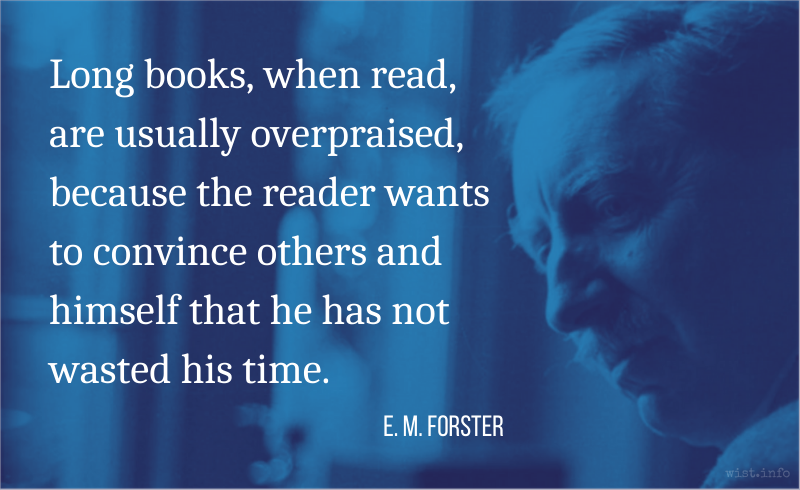Tell us, where slopes the cliff, to make a way
That man may climb? For they who know its worth
Fret most when time is wasted in delay.[Ditene dove la montagna giace,
sì che possibil sia l’andare in suso;
ché perder tempo a chi più sa più spiace.]Dante Alighieri (1265-1321) Italian poet
The Divine Comedy [Divina Commedia], Book 2 “Purgatorio,” Canto 3, l. 76ff (3.76-78) (1314) [tr. Sayers (1955)]
(Source)
Virgil inquiring of the "Contumacious" (the rebellious and excommunicates who only sought the forgiveness of God at the end of their lives) the best route to climb the Mountain of Purgatory. He actually gets in a dig at them, as they are themselves delayed ascending the Mountain because of their delayed turn to Salvation.
(Source (Italian)). Alternate translations:
Shew, where with easier slope these mountains bend,
The MENTAL PROGRESS ill can bear a stand.
[tr. Boyd (1802), st. 15]
Instruct us where the mountain low declines,
So that attempt to mount it be not vain.
For who knows most, him loss of time most grieves.
[tr. Cary (1814)]
Tell us in what direction mountain lies --
If it be possible to climb its side?
Lost time the wisest find it worst to bide.
[tr. Bannerman (1850)]
Tell us upon what side the mountain slopes,
So that the going up be possible,
For to lose time irks him most who most knows.
[tr. Longfellow (1867)]
Tell us where the mountain falls, so that it is possible to go upward; for loss of time displeases most who most knows.
[tr. Butler (1885)]
Tell us where easiest slopes the precipice.
So that we there our upward path may hold:
Him who knows most time lost doth most displease.
[tr. Minchin (1885)]
Tell us, where the mountain lies so that the going up is possible; for to lose time is most displeasing to him who knows most.
[tr. Norton (1892)]
Tell us where the mountain slopes, so that it may be possible to go upward; for time lost irks him who knowest most.
[tr. Okey (1901)]
Tell us where the mountain slopes so that it is possible to go up; for loss of time most grieves him that knows best.
[tr. Sinclair (1939)]
Tell us where slopes the mountain by degrees
Such, that it may be possible to ascend;
For him who knows most lost hours most displease.
[tr. Binyon (1943)]
Tell us which way
leads to some slope by which we two may climb.
Who best knows time is most grieved by delay.
[tr. Ciardi (1961)]
Tell us where the mountain slopes so that it is possible to go up, for time lost irks him most who knows most.
[tr. Singleton (1973)]
Tell us where the mountain slopes enough
for us to start our climb: the more one learns,
the more one comes to hate the waste of time.
[tr. Musa (1981)]
Tell us where the mountain-side slopes so
That it is possible to go up higher;
For those who know most, dislike most to dawdle.
[tr. Sisson (1981)]
Please tell
us where the slope inclines and can be climbed;
for he who best discerns the worth of time
is most distressed whenever time is lost.
[tr. Mandelbaum (1982)]
Tell us where the mountain slopes so that it is possible to climb it; for losing time displeases most those who know most.
[tr. Durling (2003)]
Tell us where the mountain slopes allow us to go upwards, since lost time troubles those most, who know most.
[tr. Kline (2002)]
Please tell us where the mountain angles down
to make it possible for us to climb.
For those who know the most, most hate time lost.
[tr. Kirkpatrick (2007)]
Tell us where the mountain rises gently
so that we may begin the long ascent.
The more we know, the more we hate time's waste.
[tr. Hollander/Hollander (2007)]
Tell us where they bend, these mountain slopes,
So feet may find their way. A man of knowledge
Regrets the loss of time far more than most.
[tr. Raffel (2010)]
Quotations about:
waste of time
Note not all quotations have been tagged, so Search may find additional quotes on this topic.
Not to talk with people although they can be talked with is to waste people. To talk with people although they can’t be talked with is to waste words. A man of understanding does not waste people, but he also does not waste words.
[子曰、可與言、而不與之言、失人、不可與言、而與之言、失言、知者不失人、亦不失言。]
Confucius (c. 551- c. 479 BC) Chinese philosopher, sage, politician [孔夫子 (Kǒng Fūzǐ, K'ung Fu-tzu, K'ung Fu Tse), 孔子 (Kǒngzǐ, Chungni), 孔丘 (Kǒng Qiū, K'ung Ch'iu)]
The Analects [論語, 论语, Lúnyǔ], Book 15, verse 8 (15.8) (6th C. BC – 3rd C. AD) [tr. Dawson (1993)]
(Source)
(Source (Chinese)). Older translations use Legge's original verse divisions and numbering (15.7).
The passage contains a native pun, combining both noun and verb senses of yén [言] (talk), which is difficult to translate into English (leading to blends of "speak" and "talk" and "words"). Alternate translations:
When a man may be spoken with, not to speak to him is to err in reference to the man. When a man may not be spoken with, to speak to him is to err in reference to our words. The wise err neither in regard to their man nor to their words.
[tr. Legge (1861), 15.7]
Not to speak to a man to whom you ought to speak, is to lose your man; to speak to one to whom you ought not to speak is to lose your words. those who are wise will not lose their man, nor yet their words.
[tr. Jennings (1895), 15.7]
When you meet the proper person to speak to and do not speak out, you lose your opportunity; but when you meet one who is not a proper person to speak to and you speak to him, you waste your words. A man of intelligence never loses his opportunity, neither does he waste his words.
[tr. Ku Hung-Ming (1898), 15.7]
Not to enlighten one who can be enlightened is to waste a man; to enlighten one who cannot be enlightened is to waste words. The intelligent man neither wastes his man nor his words.
[tr. Soothill (1910), 15.7]
When you should talk to a man, and don’t, you lose the man; when it’s no use talking to a man, and you talk to him, you waste words. An intelligent man wastes (loses) neither men nor words.
[tr. Pound (1933), 15.7]
Not to talk to one who could be talked to, is to waste a man. To talk to those who cannot be talked to, is to waste one's words. He who is truly wise never wastes a man; but on the other hand, he never wastes his words.
[tr. Waley (1938), 15.7]
If we fail to speak with a man who can be spoken with, we lose a man. If we do speak with a man who cannot be spoken with, our words go for nought. The wise lose neither man nor words.
[tr. Ware (1950), 15.8]
When you find a person worthy to talk to and fail to talk to him, you have lost your man. When you find a man unworthy to talk to and you talk to him, you have lost (i.e., wasted) your words. A wise man neither loses his man, nor loses his words.
[tr. Lin Yutang (1938)]
To fail to speak to a man who is capable of benefiting is to let a man go to waste. To speak to a man who is incapable of benefiting is to let one's words go to waste. A wise man lets neither men nor words go to waste.
[tr. Lau (1979), 15.8]
When dealing with a man who is capable of understanding your teaching, if you do not teach him, you waste the man. When dealing with a man who is incapable of understanding your teaching, if you do teach him, you waste your teaching. A wise teacher wastes no man and wastes no teaching.
[tr. Leys (1997), 15.8]
If a man is worth talking to and you do not talk to him, you lose a man; if a man is not worth talking to and you talk to him, you lose your words. The man of wisdom neither loses a man nor loses his words.
[tr. Huang (1997), 15.8]
When you should talk with one, you do not talk with one, it means to lose the people. When you should not talk with one, you talk with one, it means to lose the word. A wise person does not lose the people, and does not lose the word too.
[tr. Cai/Yu (1998), 15.8 / #392]
To fail to speak to someone who can be engaged is to let that person go to waste; to speak to someone who cannot be engaged is to waste your words. The wise [zhi] do not let people go to waste, but they do not waste their words, either.
[tr. Ames/Rosemont (1998), 15.8]
If he can be talked to and you do not talk to him, you waste the man. If he cannot be talked to and you talk to him, you waste your talk. The knowledgeable will not waste a man, but will also not waste his talk.
[tr. Brooks/Brooks (1998), 15.8]
When a person is capable of understanding your words, and you refuse to speak, you're wasting a person. When a person isn't capable of understanding your words, and you speak anyway, you're wasting words. The wise waste neither words nor people.
[tr. Hinton (1998), 15.8]
If it's someone you ought to speak to and you fail to speak, you waste a person. If it's someone you ought not to speak to and you speak, you waste words. The wise man doesn't waste people and doesn't waste words, either.
[tr. Watson (2007), 15.8]
Not to speak to a man who is capable of absorbing what you say is to let the man go to waste. To speak to a man who is incapable of absorbing what you say is to let your words go to waste. A person of wisdom does not let either men or words go to waste.
[tr. Annping Chin (2014), 15.8]
When it is appropriate and feasible to speak [and give advice] to a person, but you refrain from doing so, you will lose a friend. When it is inappropriate or infeasible to speak to a person, but you speak anyhow, you misspeak.
[tr. Li (2020), 15.8]
Many see the trees but not the forest, or bark up the wrong tree, speaking endlessly, reasoning uselessly, without getting to the heart of the matter. They go round and round, tiring themselves and us, and never get to what is important. This happens to people with confused minds who do not know how to clear away the brambles. They waste time and patience on what it would be better to leave alone, and later there is no time for what they left.
[Vanse muchos o por las ramas de un inútil discurrir, o por las hojas de una cansada verbosidad, sin topar con la sustancia del caso. Dan cien vueltas rodeando un punto, cansándose y cansando, y nunca llegan al centro de la importancia. Procede de entendimientos confusos, que no se saben desembarazar. Gastan el tiempo y la paciencia en lo que habían de dejar, y después no la hay para lo que dejaron.]
Baltasar Gracián y Morales (1601-1658) Spanish Jesuit priest, writer, philosopher
The Art of Worldly Wisdom [Oráculo Manual y Arte de Prudencia], § 136 (1647) [tr. Maurer (1992)]
(Source)
(Source (Spanish)). Alternate translations:
Many fetch a tedious compass of words, without ever coming to the knot of the business: they make a thousand turnings and windings, that tire themselves and others, without ever arriving at the point of importance. And that proceeds from the confusion of their understanding, which cannot clear it self. They lose time and patience in what ought to be let alone, and then they have no more to bestow upon what they have omitted.
[Flesher ed. (1685)]
Many lose their way either in the ramifications of useless discussion or in the brushwood of wearisome verbosity without ever realising the real matter at issue. They go over a single point a hundred times wearying themselves and others and yet never touch the all important centre of affairs. This comes from a confusion of mind from which they cannot extricate themselves. They waste time and patience on matters they should leave alone and cannot spare them afterwards for what they have left alone.
[tr. Jacobs (1892)]
Most roam around, in useless millings either about the edge, or in the scrub of a tiresome verbosity, without striking upon the substance of the matter, they make a hundred turns about a point, wearying themselves, and wearying others, yet never arriving at the centre of what is important,- it is the product of a scattered brain that does not know how to get itself together,- they spend time, and exhaust patience, over that which they should leave alone, and afterwards are short of both for what they did leave alone.
[tr. Fischer (1937)]
So you pretend to fear you may be hit
By pointed epigrams, the shafts of wit?
To seem a worthy foeman you aspire,
How vain alike the fear and the desire!
Against fiercest bulls the lion’s wrath may rise,
He scorns to war with puny butterflies.[Versus et breve vividumque carmen
in te ne faciam times, Ligurra,
et dignus cupis hoc metu videri.
sed frustra metuis cupisque frustra.
in tauros Libyci fremunt leones,
non sunt papilionibus molesti.]Martial (AD c.39-c.103) Spanish Roman poet, satirist, epigrammatist [Marcus Valerius Martialis]
Epigrams [Epigrammata], Book 12, epigram 61 (12.61.1-6) (AD 101) [tr. Pott & Wright (1921)]
(Source)
"To Ligurra". (Source (Latin)). Alternate translations:
You dread my verse, and sting of wit,
Which put you in a shaking fit:
Would seem of rank to entertain
Such fears: your fears and hopes are vain.
'Tis at the bull that lions fly,
While rats run unregarded by.
[tr. Hay (1755)]
Lest a little living song
Make thy fame, Ligurra, long;
Thou would'st have thy terror seen:
Vain thy wish as fear, I ween.
At the bulls the lions rise,
Never rush on butterflies.
[tr. Elphinston (1782), Book 3, ep. 31]
You are afraid, Ligurra, lest I should compose verses on you, some short and pungent epigram, and you wish to be thought a proper object of such rear. But vain is your fear. and vain your desire! Libyan lions rush upon bulls; they do not hurt butterflies.
[tr. Bohn's Classical (1859)]
You fear, Ligurra -- above all, you long --
That I should smite you with a singing song,
This dreadful honour you both fear and hope:
Both quite in vain: you fall below my scope.
The Libyan lion tears the roaring bull,
He does not harm the midge along the pool.
[tr. Stevenson (1884)]
You are afraid, Ligurra, I should write verses on you, and some short and lively poem, and you long to be thought a man that justifies such fear. But vain is your fear, and your longing is vain. Against bulls Libyan lions rage, they are not hostile to butterflies.
[tr. Ker (1919)]
You say you're scared I'm going to aim
A lampoon at you, something brief
And lurid, and half proudly claim
You're a marked man. Wishful belief!
Misapprehended apprehension!
African lions pay attention
To bulls, they don't hunt butterflies.
[tr. Michie (1972)]
Ligurra's fearful I'll contrive
Some pungent piece, some sprightly ditty,
And longs to be considered worth it.
Longings baseless! Baseless fears!
The Libyan lion paws the Libyan bull
But does not bat the butterfly.
[tr. Whigham (1987)]
You are afraid, Ligurra, of my writing verses against you, a brief, lively poem, and you long to seem worthy of such an apprehension. But idle is your fear and idle your desire. Libyan lions roar at bulls, they do not trouble butterflies.
[tr. Shackleton Bailey (1993)]
Ah Ligurra, you’re quite afraid that I might write
About you. Some nasty, pithy, diamond-shard of spite
As is my wont. In fact, you quite like the idea.
Well, don’t get your hopes up I’ll gratify that fear.
I may be beastly but I claw with discretion,
No stepping on insects, flattered to be flattened.
[tr. Ynys-Mon (2007)]
You fear I'll write a brief and lively poem
attacking you, Ligurra, and you yearn
to seem one who would merit such a fear.
Your wish is vain and so is your concern.
Lions of Libya roar at bulls; they leave
butterflies unmolested.
[tr. McLean (2014)]
Ligurra, you fear that I might compose
Verses against you, a brief, intense poem --
Oh how you long to seem worthy of this fear.
But you fear in vain, in vain you long.
The Libyan lions growl at bulls;
They do not pester butterflies.
[tr. @sentantiq (2018)]
See also Ben Jonson (1572-1637):
Sir Inigo doth fear it, as I hear,
And labors to seem worthy of that fear,
That I should write upon him some sharpe verse,
Able to eat into his bones, and pierce
Their marrow. Wretch! I quit thee of thy pain,
Thou'rt too ambitious, and dost fear in vain:
The Lybian lion hunts no butterflies,
He makes the camel and dull ass his prize.
Each person is only given so many
Evenings
And each wasted evening is
A gross violation against the
Natural course of
Your only
Life ….Charles Bukowski (1920-1994) German-American author, poet
“The Telephone” (c. 1991), The Last Night of the Earth (1992)
(Source)
Long books, when read, are usually overpraised, because the reader wants to convince others and himself that he has not wasted his time.
E. M. Forster (1879-1970) English novelist, essayist, critic, librettist [Edward Morgan Forster]
Commonplace Book (1985) [ed. Gardner]
(Source)
‘Tis hard bewildering riddles to compose
And labour lost to work at nonsense prose.[Turpe est difficiles habere nugas,
Et stultus labor est ineptiarum.]Martial (AD c.39-c.103) Spanish Roman poet, satirist, epigrammatist [Marcus Valerius Martialis]
Epigrams [Epigrammata], Book 2, epigram 86 (2.86.9-10) (AD 86) [tr. Francis & Tatum (1924), #105]
(Source)
Discussing writing elaborate or highly stylized poetry forms. (Source (Latin)). Alternate translations:
Disgraceful 't is unto a poet's name
Difficult toys to make his highest am:
The labour's foolish that doth rack the brains
For things have nothing in them, but much pains.
[tr. Killigrew (1695)]
How foolish is the toil of trifling cares.
[tr. Johnson (1750); he credits the translation Elphinston]
How pitifull the boast of petty feats!
How idle is the toil of mean conceits!
[tr. Elphinston (1782), 2.76]
It is disgraceful to be engaged in difficult trifles; and the labour spent on frivolities is foolish.
[tr. Amos (1858), 2.19]
It is absurd to make one's amusements difficult; and labor expended on follies is childish.
[tr. Bohn's Classical (1859)]
'Tis mean and foolish to assign
Long care and pains to trifles light.
[tr. Webb (1879)]
Disgraceful ’tis to treat small things as difficult;
‘Tis silly to waste time on foolish trifles.
[ed. Harbottle (1897)]
'Tis degrading to undertake difficult trifles; and foolish is the labour spent on puerilities.
[tr. Ker (1919)]
'Tis hard bewildering riddles to compose
And labor lost to work at nonsense prose.
[tr. Francis & Tatum (1924)]
It's demeaning to make difficulties out of trifles, and labor over frivolities is foolish.
[tr. Shackleton Bailey (1993)]
It is absurd to make trifling poetry difficult, and hard work on frivolities is foolish.
[tr. Williams (2004)]
The Latin phrase was used by Addison as the epigram of The Spectator #470 (29 Aug 1712).
A teacher who is attempting to teach without inspiring the pupil with a desire to learn is hammering cold iron.
Horace Mann (1796-1859) American educator
(Attributed)
Quoted in The Eclectic Magazine, Vol. 8 (Jan-Jun 1868), and in The Myrtle, Vol. 24, #40 (30 Jan 1875)
He who has so little knowledge of human nature, as to seek happiness by changing any thing but his own dispositions, will waste his life in fruitless efforts, and multiply the griefs which he purposes to remove.
Samuel Johnson (1709-1784) English writer, lexicographer, critic
The Rambler, #6 (7 Apr 1750)
(Source)
She hung up and I set out the chess board. I filled a pipe, paraded the chessmen and inspected them for French shaves and loose buttons, and played a championship tournament game between Gortchakoff and Meninkin, seventy-two moves to a draw, a prize specimen of the irresistible force meeting the immovable object, a battle without armour, a war without blood, and as elaborate a waste of human intelligence as you could find anywhere outside an advertising agency.
The time you enjoy wasting is not wasted time.
Bertrand Russell (1872-1970) English mathematician and philosopher
(Misattributed)
Misattributed to many modern authors besides Russell, including John Lennon, T. S. Elliot, and Soren Kierkegaard.
The frequent misattribution to Russell is from the phrase being used by Lawrence J. Peter in Peter's Quotations (1977) about a different Russell quote ("The thing that I should wish to obtain from money would be leisure with security"). In turn, the words were not original with Peter: the earliest citation for this quote is Marthe Troly-Curtin, Phyrnette Married, ch. 29 (1912).
More information on the history of this quotation: Time You Enjoy Wasting Is Not Wasted Time – Quote Investigator®.
The most wasted of all days is that on which one has not laughed.
[La plus perdue de toutes les journées est celle où l’on n’a pas ri.]
Nicolas Chamfort (1741-1794) French writer, epigrammist (b. Nicolas-Sébastien Roch)
Products of Perfected Civilization [Produits de la Civilisation Perfectionée], Part 1 Maxims and Thoughts [Maximes et Pensées], ch. 1, # 80 (1795) [tr. Morley (1887)]
(Source)
Often attributed to a more contemporary comedian (Groucho Marx, Charlie Chaplin) or writers such as Ben Burroughs, Grigori Alexandrov. It is arguably a clear enough sentiment that others might reinvent it.
(Source (French)). Alternate translation:
The most lost of all days, is that in which we have not laughed.
[Source (1803)]
The most completely lost of all days is that on which one has not laughed.
[Source (1891)]
The worst wasted of all days is that during which one has not laughed.
[tr. Hutchinson (1902), "The Cynic's Breviary"]
Of all days, the day on which one has not laughed is the one most surely wasted.
[tr. Mathers (1926)]
That of all days is the most completely wasted in which one did not once laugh.
[tr. Merwin (1969)]
The day that we have most lost is the one on which we have not laughed.
[Source]
Other versions:More history of the quotation: A Day Without Laughter is a Day Wasted – Quote Investigator®
- "A day without laughter is a day wasted." [Chaplin]
- "The most lost of all days is that in which one has not laughed."
- "The most wasted day of all is that in which we have not laughed."
There is no doubt that the “grail” of efficiency leads to abuse. Programmers waste enormous amounts of time thinking about, or worrying about, the speed of noncritical parts of their programs, and these attempts at efficiency actually have a strong negative impact when debugging and maintenance are considered. We should forget about small efficiencies, say about 97% of the time: premature optimization is the root of all evil.













